Do you have a question about the Hitachi G1500 and is the answer not in the manual?
Information regarding safety and environmental considerations for operating the storage systems.
Identifies the target audience for this hardware guide.
Specifies the microcode version this document revision applies to.
Contains information about product release notes and where to find them.
Lists the updates and modifications made in the current revision of the document.
Lists other Hitachi Vantara documents relevant to the storage systems.
Explains the typographic conventions used throughout the document.
Defines how storage capacity units are calculated and represented in the document.
Provides instructions on how to access product documentation online.
Offers guidance on how to obtain technical support and assistance.
Instructions for providing feedback or comments on the document.
Provides a high-level description of the storage system's capabilities.
Details the key hardware and software features of the storage systems.
Discusses the performance aspects and features that enhance system speed.
Explains how the storage systems can be scaled to meet growing requirements.
Describes the various connectivity options supported by the storage systems.
Details the features that ensure high reliability and data integrity.
Outlines the system's flexibility in terms of configurations and deployment.
Presents common system configurations based on customer use cases.
Lists the software applications that the storage systems support.
Explains how to perform maintenance and upgrades without interrupting operations.
Describes the high temperature operating mode and its implications.
Highlights the system's energy efficiency and low noise operation.
Details the various system configurations and model numbers.
Illustrates the major storage system components within racks.
Lists the supported components for block module configurations.
Outlines the minimum configuration options supported for the systems.
Details the model numbers for various storage system components.
Describes the components and structure of the system controller chassis.
Details the components visible on the front of the controller.
Details the components visible on the rear of the controller.
Describes the front-end directors (FEDs) and their role in system connectivity.
Lists the supported connectors and communication protocols for the system.
Provides guidance on installing front-end directors in various configurations.
Explains the function and types of back-end directors (BEDs) in the system.
Details how to install back-end directors in flexible configurations.
Describes the different types of drive chassis and their support.
Explains the cache memory configuration and capacity options.
Describes how the controller handles read and write operations in cache.
Details the mechanisms used to protect data in cache during power failures.
Discusses recommendations for cache capacity based on system usage.
Explains the role and capacity of shared memory in the system.
Describes the cache flash memory and its function in data backup.
Provides a general overview of the system's hardware architecture.
Details how RAID is implemented across the VSP G1000, G1500, and F1500 models.
Explains array groups and the supported RAID levels (1, 5, 6).
Describes the RAID 1 configurations and their characteristics.
Details the RAID 5 configurations, including 3D+1P and 7D+1P.
Explains the RAID 6 configuration, highlighting its reliability.
Discusses LDEV striping across multiple RAID groups for improved performance.
Provides information on control unit images, logical volume images, and logical units.
Details the support for control unit (CU) emulation types.
Describes the supported Mainframe Logical Volume Image (LVI) types.
Explains the OPEN-V logical unit types and features.
Covers mainframe compatibility, support, and configurations.
Discusses compatibility and functions for mainframe environments.
Lists the IBM mainframe operating systems supported by the storage systems.
Outlines the steps for configuring the storage system for mainframe operations.
Provides an overview of open-systems compatibility, support, and configuration.
Details the features and functions supported for open-systems environments.
Lists the major open system operating systems supported by the storage systems.
Describes how to configure the storage system for open-systems operations.
Explains host modes and options for enhancing compatibility.
Introduces the Device Manager - Storage Navigator GUI for system management.
Outlines the shared responsibilities for site planning and preparation.
Lists the tasks the customer must complete for site preparation.
Details the tasks Hitachi Vantara support performs for installation.
Provides a checklist to ensure site readiness for storage system installation.
Covers general requirements for accommodating equipment delivery and movement.
Specifies the required clearances for equipment installation and access.
Addresses the importance of floor, elevator, and ramp capacity for equipment weight.
Outlines requirements for storing equipment before installation.
Details the grounding requirements for site and equipment.
Explains the AC power input and connection methods for the storage system.
Specifies requirements for power distribution unit plugs and circuit breakers.
Lists the essential requirements for data center facilities.
Outlines the operational needs for the storage system, including LAN and cable lengths.
Addresses installing systems in third-party racks and contact information.
Describes requirements for service clearance, floor cutouts, and load ratings.
Details the service clearances required for a single-rack configuration.
Outlines service clearances for a two-rack, single-controller setup.
Specifies service clearances for a two-rack, dual-controller setup.
Provides service clearances for a three-rack, single-controller setup.
Details service clearances for a three-rack, dual-controller setup.
Specifies service clearances for a four-rack configuration with center controllers.
Details service clearances for a four-rack setup with left controllers.
Outlines service clearances for a five-rack configuration.
Provides service clearances for a six-rack configuration.
Details service clearances for a seven-rack configuration.
Shows the front-end director port configurations for the storage systems.
Illustrates how to connect power distribution units and panels.
Details how to connect PDUs to the PDP using an uninterruptible power supply.
Provides cabling diagrams for connecting data and control cables.
Explains options for separated rack configurations and extended cabling.
Describes configurations where primary and secondary controller racks are separated.
Discusses separating racks with controllers from racks with only drive chassis.
Details configurations with dual controllers and separated racks for drive chassis.
Describes the switches and indicators on the storage system's power control panel.
Explains the system's idle mode and its power consumption characteristics.
Step-by-step instructions for powering on the storage system.
Step-by-step instructions for powering off the storage system.
Procedures for shutting down the system during emergencies and turning it back on.
Instructions for restoring power after an emergency shutdown.
Explains how batteries maintain caching during power failures.
Details the cache backup batteries and their function.
Discusses the lifespan and charging characteristics of the batteries.
Provides guidelines for storing the system during extended periods of non-operation.
Information on how to obtain assistance for technical difficulties.
Lists common error conditions and recommended actions for resolution.
Explains service information messages (SIMs) and their severity levels.
Lists the technical specifications for VSP G1x00 storage systems.
Details the technical specifications for the VSP F1500 storage system.
Provides specifications and installation guidelines for various drive types.
Details the maximum number of drives supported per chassis and system.
Lists the physical dimensions of the storage systems in different configurations.
Provides the weight specifications for the storage systems in various configurations.
Details the input power requirements and current ratings for system components.
Specifies requirements for power distribution unit plugs and circuit breakers.
Lists the environmental conditions required for operating, non-operating, and shipping/storage.
Provides information on the acoustic emission levels of the storage systems.
Details power consumption, heat output, and airflow for system components.
Specifies the features of the Americas single-phase PDU 1P30A-8C13-3C19UL.P.
Details the specifications for the Americas single-phase PDU 1P30A-15C13-3C19UL.P.
Describes the specifications for the Americas three-phase PDU 3P30A-8C13-3C19UL.P.
Lists the specifications for the Americas three-phase PDU 3P30A-24C13-6C19UL.P.
Details the specifications for the APAC/EMEA single-phase PDU 1P32A-9C13-3C19CE.P.
Provides specifications for the APAC/EMEA single-phase PDU 1P32A-18C13-3C19CE.P.
Describes the specifications for the APAC/EMEA three-phase PDU 3P16A-9C13-3C19CE.P.
Lists the specifications for the APAC/EMEA three-phase PDU 3P16A-15C13-3C19CE.P.
Details the specifications for the APAC/EMEA three-phase PDU 3P32A-24C13-6C19CE.P.
Provides general safety guidelines for installing and operating equipment.
Outlines safety practices to follow when working with the equipment.
Warns about potential hazards associated with moving or rotating parts.
Provides essential guidelines for safe electrical handling and system operation.
Lists the certifications and compliance standards met by the storage systems.
Details compliance with FCC regulations for Class A digital devices.
Explains the electronic emissions testing procedures and configurations.
States the equipment's compliance with European electromagnetic compatibility directives.
Informs about potential export license requirements for technical data.
Refers to pollution control requirements for electronic information products in China.
Lists hazardous and toxic substances present in the equipment components.
Provides information on the proper disposal of electronic equipment.
Guidelines for recycling battery units and other components.
Mentions the availability of Underwriters Laboratories EMI compliance certificates.
| Category | Storage |
|---|---|
| Type | Modular Storage System |
| Model | G1500 |
| Drive Types Supported | SAS, SSD |
| Host Interfaces | Fibre Channel, iSCSI, FCoE |
| RAID Levels Supported | 0, 1, 5, 6, 10 |
| Management Software | Hitachi Command Suite |

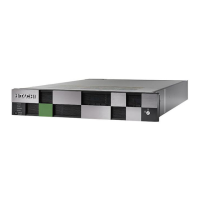
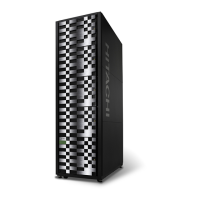
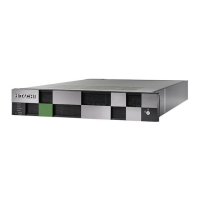

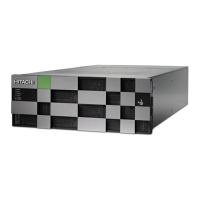
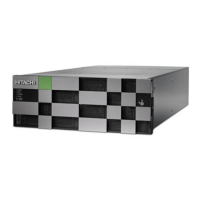


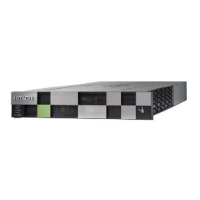

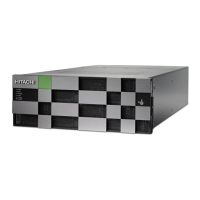
